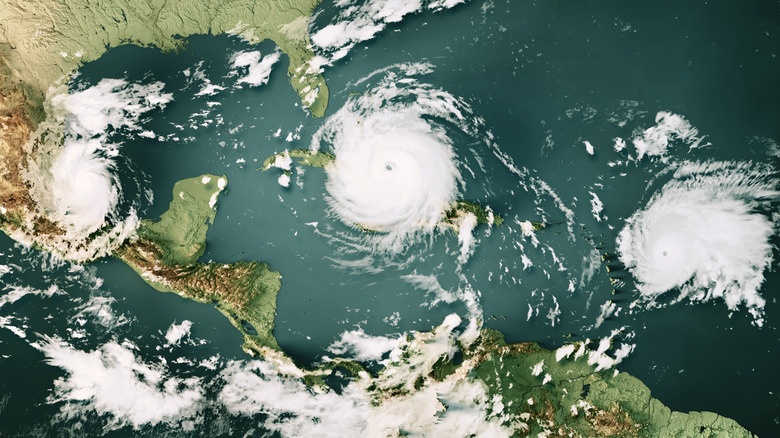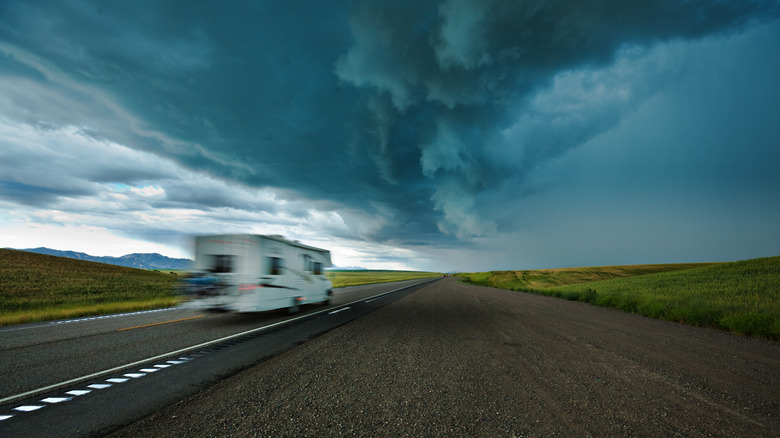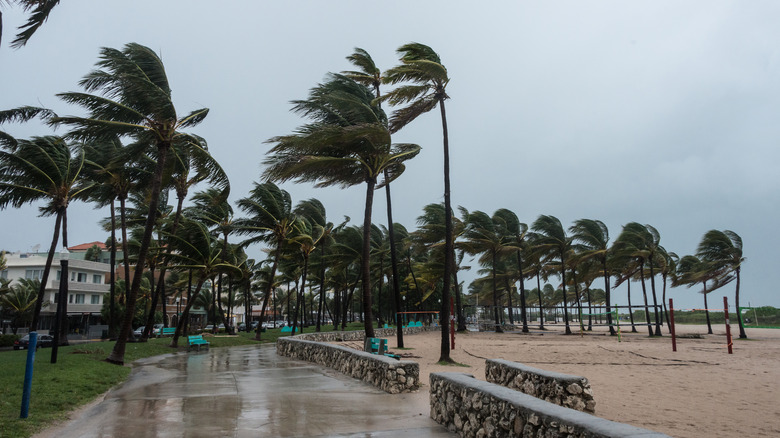Travel Guides Road Trips
Lauren Richards
Maybe you’re looking to escape to a tropical vacation and visit spots with soft, sandy beaches and sweeping ocean views. You might be looking forward to sunshine, a gentle breeze, and waves crashing against your skin — an idyllic experience that can relieve stress and leave you feeling like a new person. Or maybe you’re squeezing in a car with your friends for a road trip along the coast. You might expect sunshine, loud music, and the countryside blurring by. Regardless, these experiences can easily be interrupted by a change in weather. Popular destinations like the islands in the Caribbean aren’t a traveler’s paradise all the time — especially during hurricane season.
Dark clouds, torrential rains, and sudden flooding take over the once peaceful shores, and rather than sunbathing on the beach or cruising with the windows down, you run to take shelter from the dangerous phenomenon. Being aware of hurricane season and planning accordingly can save you from a potentially dangerous (and expensive) experience — especially if you’re driving.
What to pack

Frankramspott/Getty Images
The first step in planning for safety during hurricane season is understanding when it is. In the Caribbean and American South, it goes from June to November with the most severe weather typically occurring in August and September. Unfortunately, this is also prime time for summer road trips.
If this doesn’t deter you, be mindful of what you pack because this can help you survive a hurricane. Include bottled water and plenty of food, especially if you’re traveling when a tropical storm has been predicted. Additionally, bring portable chargers, flashlights, a first-aid kit, and a waterproof bag to store important documents such as passports, IDs, and other valuable items.
Next, download weather apps. It’s important to stay up-to-date on all the weather trends while you’re on the road. There are region-specific apps, as well as profiles on social media to help you get the best information quickly. Regardless of what you choose to use, make detailed plans. Don’t cross your fingers and hope the weather won’t be as bad as predicted and continue driving into an area where a hurricane is expected to hit. It’s best to err on the side of caution.
More storm-related tips

Yinyang/Getty Images
If you plan on taking an RV trip, plan ahead to make sure it’s successful. Do some research before selecting a campground, and look for an area on elevated ground and a good distance away from trees. In case the weather gets really bad, locate the nearest hurricane shelter, and be sure to bring whatever you need to prevent your belongings from being swept up in hurricane winds. No matter what vehicle you’re driving, check if your vehicle insurance has hurricane coverage before hitting the road. This can save you money if you find yourself stuck in a storm.
In addition to these vehicle tips, check the cancellation policy of your hotel and any booked activities. If your plans are interrupted by the possibility of bad weather, canceling or rescheduling is the safest choice. Choosing places that offer refunds can save you from the headache of spending money on a service you never receive. Ideally, you’ll find options that don’t charge a fee and let you cancel within 24-48 hours of your reservation. However, if that isn’t possible, finding a spot that gives a partial refund is better than one that doesn’t give one at all.
If you do find yourself caught in a storm while driving, don’t be afraid to slow down or pull over. Ideally, you’ll find a restaurant or gas station to park at, but if you can’t, the side of the road will do. It’s always better to be safe than sorry.

